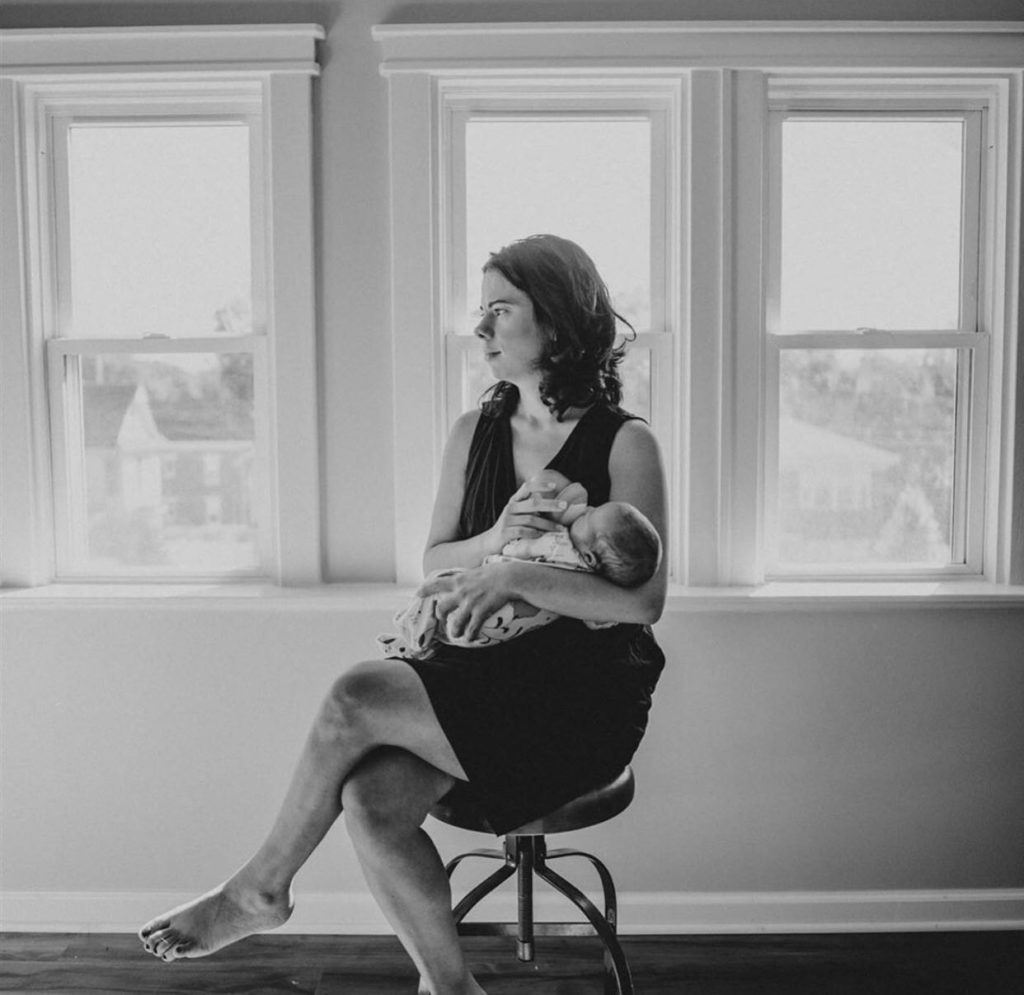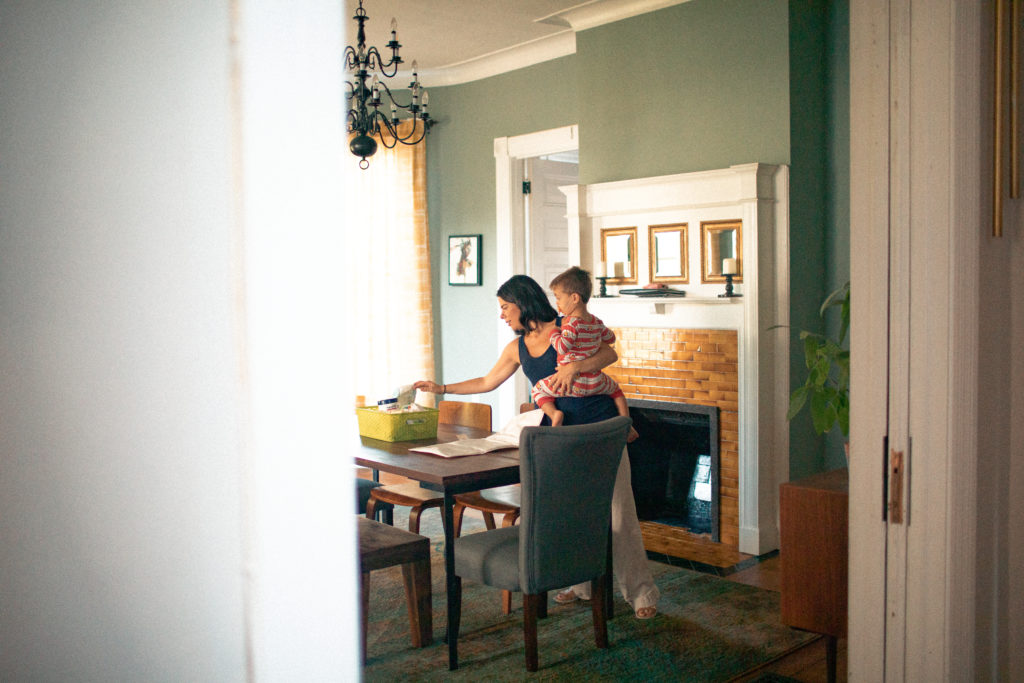Is “Mom Brain” Legit? What You Need to Know about Maternal Mental Wellness

Dr. Ashley Solomon is a clinical psychologist and the founder…
After the fourth or fifth time that I couldn’t come up with the word “dishwasher” in reference to that miracle machine in my kitchen, I started to panic. I was sure that my brain cells were being ravaged by some incurable illness and that soon I would need intensive supervision to keep me from leaving the stove on.
But then my husband would remind me that I was growing a human and so, rather than an illness, it was the parasite that was my son that was robbing my vocabulary and memory.
Could that really be true? I mean, I was aware that people would attribute their scatterdness to “pregnancy brain” sometimes, but wasn’t that just to do with their minds being occupied by the big changes coming up?
This felt more like someone had replaced my brain with a different one, one that hadn’t learned 30% of the stuff I was certain I knew at one point.
So, I dug into the literature, as I do. I needed to understand what was happening with the part of my body I personally worked out (and needed!) the most. I pulled out my neurobiology texts and refreshed myself on the maternal health research. The answers were sometimes troubling, but very validating. As I began to see more expectant and current moms in my practice, I was able to share some of the data with them as well. Here’s what we discussed:
Mom Brain” is 100% Real, but it’s not actually a deficiency.
What researchers have proven is that women who birth children do in fact lose gray matter in the brain. The losses are focused especially in two areas of the brain — those associated with social tasks (like reading other people’s desires) and those associated with memory. But this happens for an excellent reason (because Mother Nature is one smart mama, of course).
Reducing our focus on other people and our recall of less crucial info — who needs the word dishwasher, anyway?? — frees up space to focus on what’s most important for our attention post-birth — the baby, of course.

Our brain literally allows us to care less about what others want and lean into our role of parent. That’s pretty cool in my book.
Scientists have found these changes last beyond the first few postpartum months, too. They were still there at two years postpartum. So you get a LONG pass for remembering your mom’s coworker’s grandson’s name.
You can’t completely prevent postpartum depression, but you can lower your risk.
The experience of postpartum mood changes in pretty much universal. When these mood changes are severe and really start to interfere with our ability to care for ourselves or our baby in the ways we want to, postpartum mental disorders might be at play.
There are lots of risk factors that can make a mom more vulnerable to postpartum depression or anxiety. Some include things like being younger when the baby is born, having less help, having a history of mood disorders, smoking, and having a higher-risk pregnancy, among many others. Knowing your risk profile for postpartum mood issues can help you feel more prepared for what may be to come and plan ahead.
I advise pregnant people to do what they can before the baby comes to prevent or less depression.
The biggest tool we have is social support. There is simply nothing more powerful than connection in the postpartum period. Science shows that women that have partners who have more time off work to help with the recovery and caretaking process are much less likely to later need medication.
Other things that can help keep our mood in check during this period are the good ole’ movement and nutrition recommendations. Exercise has been shown to be inversely related to postpartum depression, and being deficient in certain nutrients and hormones can increase susceptibility to it.

You don’t have to birth a child to experience changes in your mind.
People who become parents through surrogacy, adoption, and other means are not immune to mental health impacts from raising kids. For one, none of us are sleeping! Any parent who has experienced the hallows of sleep deprivation and can’t remember their bosses name knows what I’m talking about. Sleep impacts on pretty much every system of our body, and brain is one of the most obvious.
The stress of shifting identities, social connection, and routines are also mental health risk factors for all parents, new and old.
Social connection is crucial at all stages of parenthood for good mental health.
I’m mentioning this twice because it’s THAT significant. Parenthood throws us challenges at every turn — from surviving a colicky baby to managing the stress of expensive daycare to bullying talks and feeding challenges. It simply doesn’t get “easier.” That’s not to say that you don’t get stronger, however.
But my belief is that the primary mechanism for developing confidence in parenthood is through a tribe of other parents who get it. You need folks who are going to tell you that it’s cool if your toddler ate the cheerios from under the table and that you’re NOT a bad mom for working full-time. We need a tribe to help with the drop-offs and pick-ups and to cheer our kid on when we can’t make every single event.
Social support saves our sanity in a multitude of ways. Yet, it can be hard to find communities where you feel safe and comfortable to get vulnerable. That’s partly why I’ve been developing Thrive Circles, particularly the Postpartum Thrive Circle, small groups of like-minded women who are supporting each other through their journeys. These kinds of connections can be a game-changer when it comes to your mental wellness.
If there’s one thing I’ve learned now being four kiddos in to this parenting gig, it’s that my mind may not be coming back. Good thing that my heart has expanded in direct proportion.
Dr. Ashley Solomon is a clinical psychologist and the founder of Galia Collaborative, an organization that helps purpose-driven women elevate their impact and mental wellness through therapy, coaching, and content. She blends her scientific acumen, her warm style, and her real-life wisdom to help people during challenge points in their lives. She's committed to busting the stigma of mental health and helping people heal, grow, and lead.


